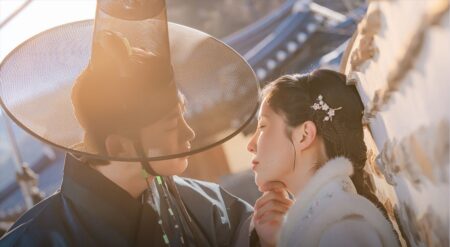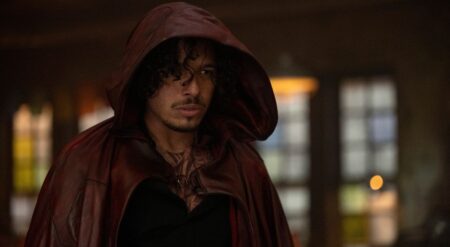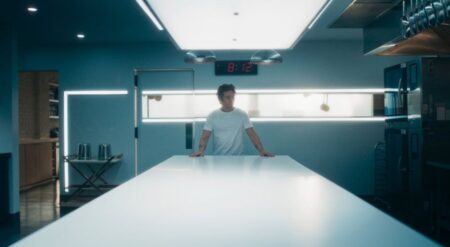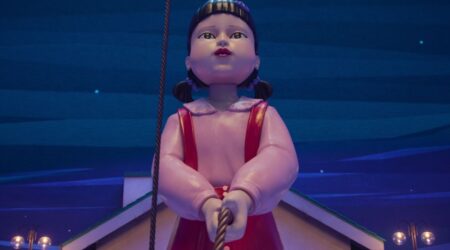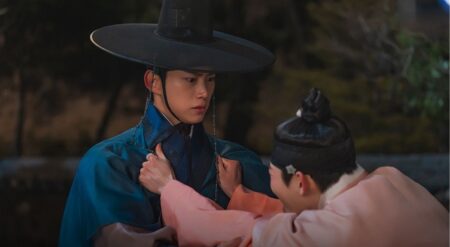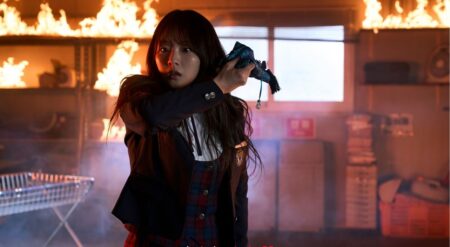In the years following the emancipation of the slaves in the southern United States, life was still hard for many. So John Ellis (Nicholas Pinnock) set out to found a town, New Babylon. A city that would be a place where all could be equal and free. But in the nearby city of Elmdale, The Lady (Noomi Rapace, You Won’t Be Alone) sees his new city as an affront to God and the natural order and wishes to destroy the thing he has created. Into the middle of this feud comes a stranger known only as Django (Matthias Schoenaerts, The Old Guard). He comes to town for his own reasons but soon finds himself swept up in the local conflicts in the Western series Django, directed by Francesca Comencini, Enrico Maria Artale, and David Evans, with writing by Leonardo Fasoli and Maddalena Ravagli.
Throughout the series’ 10 emotionally challenging episodes, Django seeks to shine a hard light on human nature and how everyone has more than one side to them. It explores how people change and don’t, and how their moments of weakness can hurt those around them. Through this approach, the series lands some hard-hitting gut punches as it explores its cast’s many failings and trials. However, there are also more than a few trip-ups along the way.
The greatest strength of Django‘s narrative is how it reveals the past. Each episode has two narratives running through it. One of these narratives is in the present, the other in the past. As expected, the past narrative informs the present, explaining the characters’ motivations and feelings in the current storyline. However, certain events in the past are returned to multiple times, with each visit revealing more elements previously hidden from the viewer. While some of these moments are signaled too strongly to be a surprise, many of them hit with a significant emotional impact.

The core conflict in this series, between Ellis and The Lady, is heavily steeped in the past as the show reveals the real motives beyond the viability of Ellis’ new city. Theirs is the aspect of this series story that fails the hardest. How their past interacts with the present makes the bulk of the story feel largely unnecessary. Hampered by what has come before, the pair repeatedly have opportunities to end the conflict but opt not to due to their shared history. This adds a frustrating layer to the show that feels unintentional. Every slight and death either rages about and lays at the other’s feet feels disingenuous since it never would’ve happened if either had done what they both claimed was their goal.
This undercutting of the narrative is a shame, as Django does an otherwise great job of telling a story that explores the cycle of violence and how it can perpetuate itself. As each act of hate and vengeance begets another, innocents are always dragged into the crossfire, causing each side to feel vindicated in their view that the other is made up of the monsters they claim they are. Never seeing how what they did is just as bad.
While the core story and the use of time to inform it has some great moments, the place where Django completely fails is in its exploration of love. Just as with the main narrative, all the relationships in this series are fundamentally flawed. However, these flaws go a bit too far, frequently traveling into the realm of problematic. Huge age gaps, potential familial relationships, and ignored abuse all litter the series look’s at the relationships of these characters. One awkward love triangle involves a father, the woman he raised from a little girl, and one of his sons. I appreciate not wanting love to look perfect, but these scenarios frequently feel far too soap opera-ish not to hurt the narrative.

The one ray of light in the show’s bleak world comes through Django’s personal arc. Like almost everyone else, he has skeletons in his closet he would like to forget. And through his trials in New Babylon, he manages to find some measure of peace. How he grows to connect with Sarah (Lisa Vicari) a prominent individual in the town, is a touching portrayal of two people overcoming shared trauma in a way that feels organic. Rarely do their moments come from a scene where one or the other sets out to address their problems, but rather present circumstances force them together, and as they struggle with each other, the show allows them to grow beyond their earlier pains.
To accommodate the less-than-stellar look at life in the old West, Django does a great job of making sure the hardships and dirtiness of life are reflected in how the series is visually presented. Most things have a rough, handmade look to them, and dirt lives everywhere. The common folk and the rich are easily separated visually simply by their ability to not have dirt caked on them. Illness and injury are always treated with the dire peril they were back then, and finding food to keep New Babylon going is always a potential crisis. This constant pressure from the dangers and hardships of everyday life helps to further inform the stress placed on the characters as they make frequent choices.
Django tries to tell a complicated story about hate, trauma, and the cycle of violence but only manages to partially succeed. Its obsession with every element of its story creates too many narrative bumps along the way, making the narrative get lost in a deluge of emotional noise, causing the viewer to simply lose focus.
Django is streaming now exclusively on Netflix.
Django
-
Rating - 6/106/10
TL;DR
Django tries to tell a complicated story about hate, trauma, and the cycle of violence but only manages to partially succeed.


